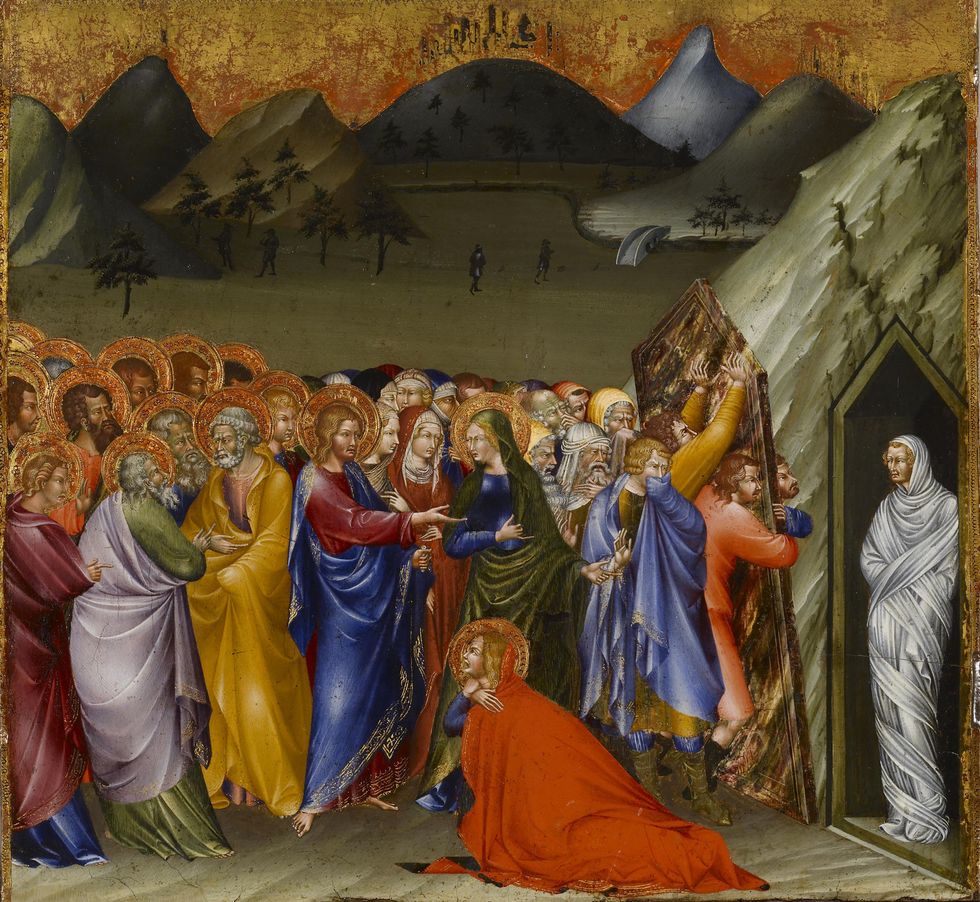One of my favorite passages in the entirety of the gospels is the account of Jesus raising Lazarus from the dead, recorded in John 11:1-40. Ever since my youth, I have found something deeply touching about God Himself weeping when His friend dies and showing compassion to the point of raising him from the dead. Although the story is easy to understand from the strict point of view of what happens in the account (even for a child), the passage is laden with multiple layers of symbolism and meaning that would take a long time to unpack. Indeed, even though the Orthodox Church spends an entire day doing so on Lazarus Saturday before Palm Sunday, one can still feel lacking in understanding.
Before Jesus goes to Bethany to resurrect Lazarus, some very fascinating dialogue occurs between Him and His disciples. The gospel states:
Now a certain man was sick, Lazarus of Bethany, the town of Mary and her sister Martha. 2 It was that Mary who anointed the Lord with fragrant oil and wiped His feet with her hair, whose brother Lazarus was sick. 3 Therefore the sisters sent to Him, saying, “Lord, behold, he whom You love is sick.”
4 When Jesus heard that, He said, “This sickness is not unto death, but for the glory of God, that the Son of God may be glorified through it.”
5 Now Jesus loved Martha and her sister and Lazarus.
Note that Jesus specifically says that Lazarus’ sickness is not unto death, but rather for the glory of God. The reader can take this one step further, identifying themselves with Lazarus, and the illness being suffered from as sin. But Christ says unto his disciples, “This sickness is not unto death…” Does not Christ say the same thing unto us, who are dead in our sins and unable to raise ourselves up? We feel unable to recover from illness of sin, instead feeling weak and a slave to our own twisted desires and habits. Hope can often seem all but lost, and we begin to despair.
But Christ proclaims, “I am the resurrection and the life.” Cannot He who rose from the dead also raise what is dead inside of us? If there was hope for Lazarus, who had been dead four days, can there also be hope for us? Despair withers in the face of Him who has conquered sin, death, and hell on our behalf. We too can become alive again by following and listening to Jesus. He who loved Lazarus also loves us.
Let us therefore run to Christ, with the hope of receiving healing, love, and mercy from Him who was begotten before all ages. May He grant us His salvation and the Kingdom to come.
















